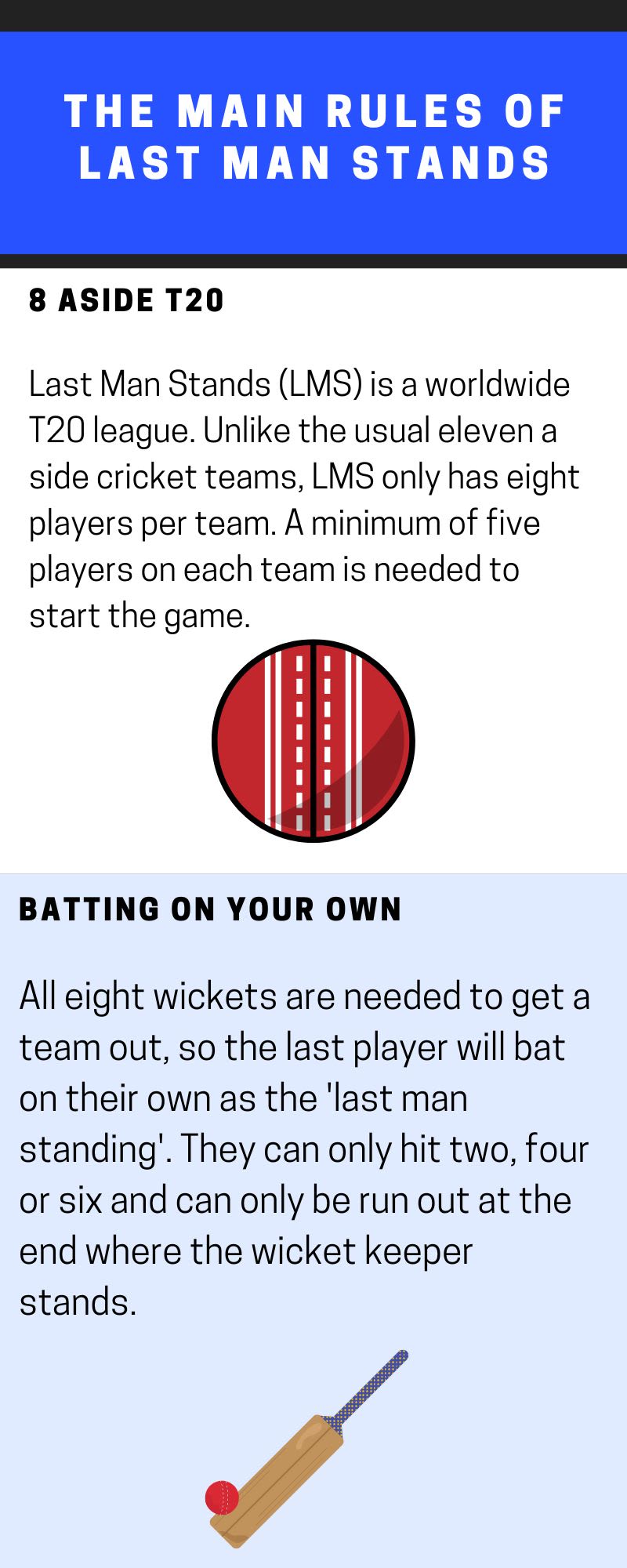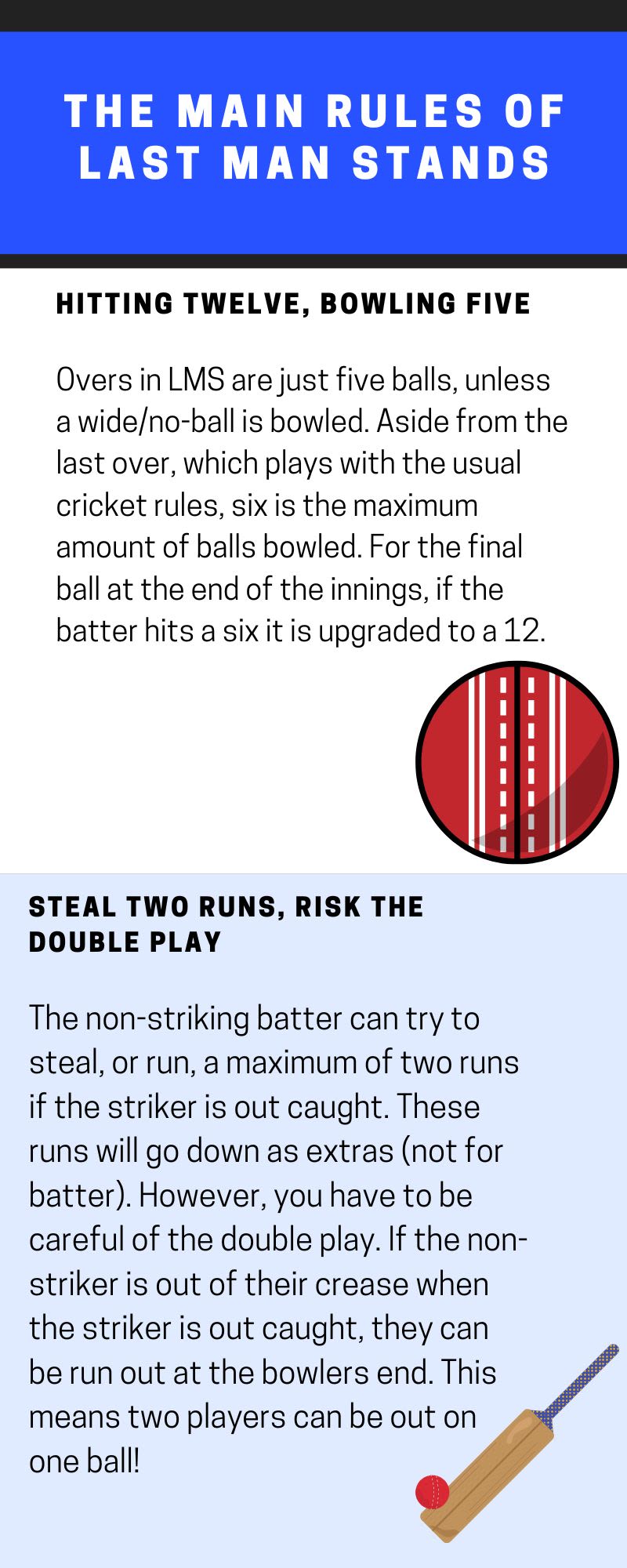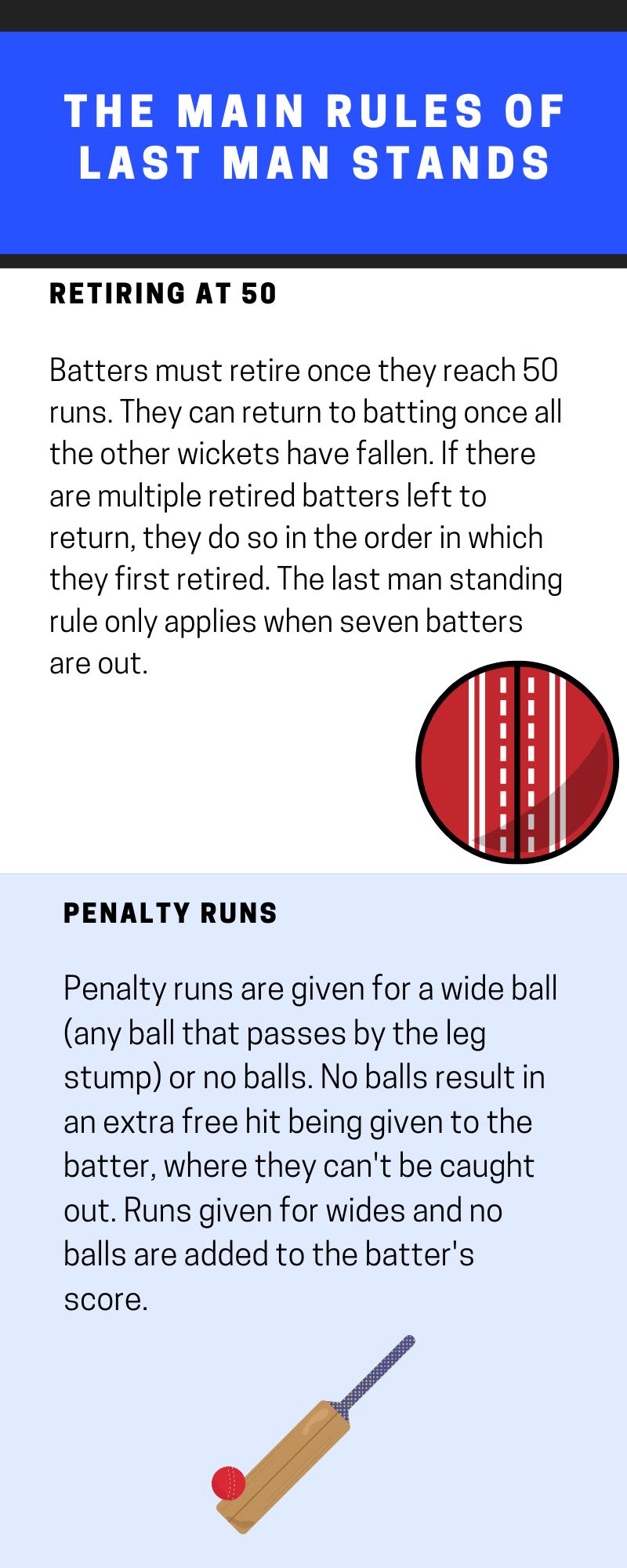A game for all abilities
Amateur cricket in England

Leather on willow
It's the summer, it's a Sunday, and you're walking through an English countryside village on a typically bright, sunny day.
From a distance, you can hear a faint but familiar sound of leather on willow. Bat hitting ball. Cricket is being played.
It's a sound and a story being repeated across the country, in towns, cities and villages.
Young and old, male and female, talented and...not so talented, coming together to play a sport loved by so many.
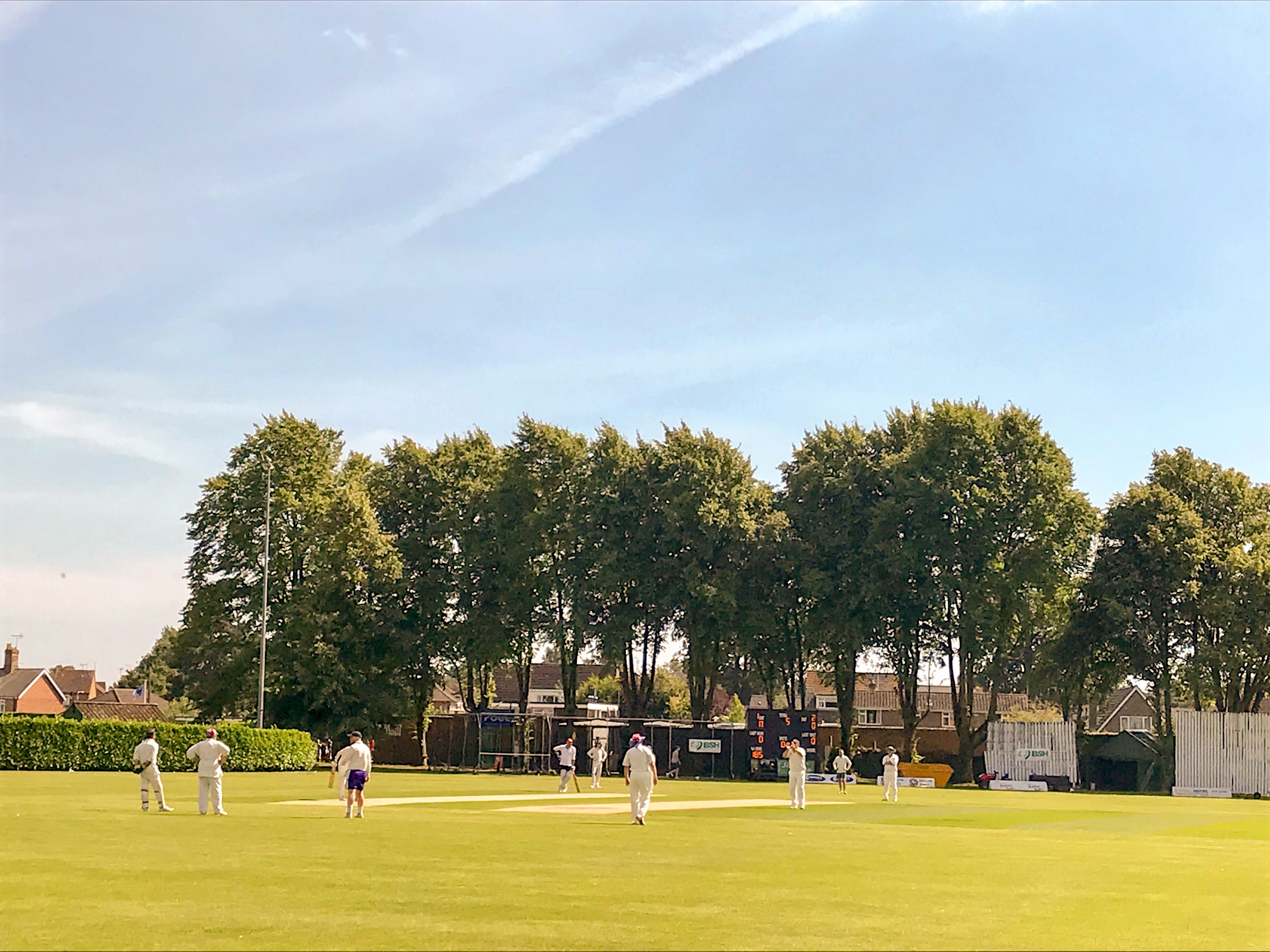
A typical summer's day on an English town green. Credit: Peter Gilbert
A typical summer's day on an English town green. Credit: Peter Gilbert
According to sport-travel.com, cricket is one of the top five sports played in the United Kingdom.
For most players, the level of professional cricket is a distant dream.
Fortunately, amateur cricket in England has many options for those seeking to play the game, be it competitively or just for fun.
Whether it be as part of a long established club, as part of a friendlies team or for a couple of hours in a Last Man Stands match, amateur cricketers have many opportunities to get involved in the game.




League cricket
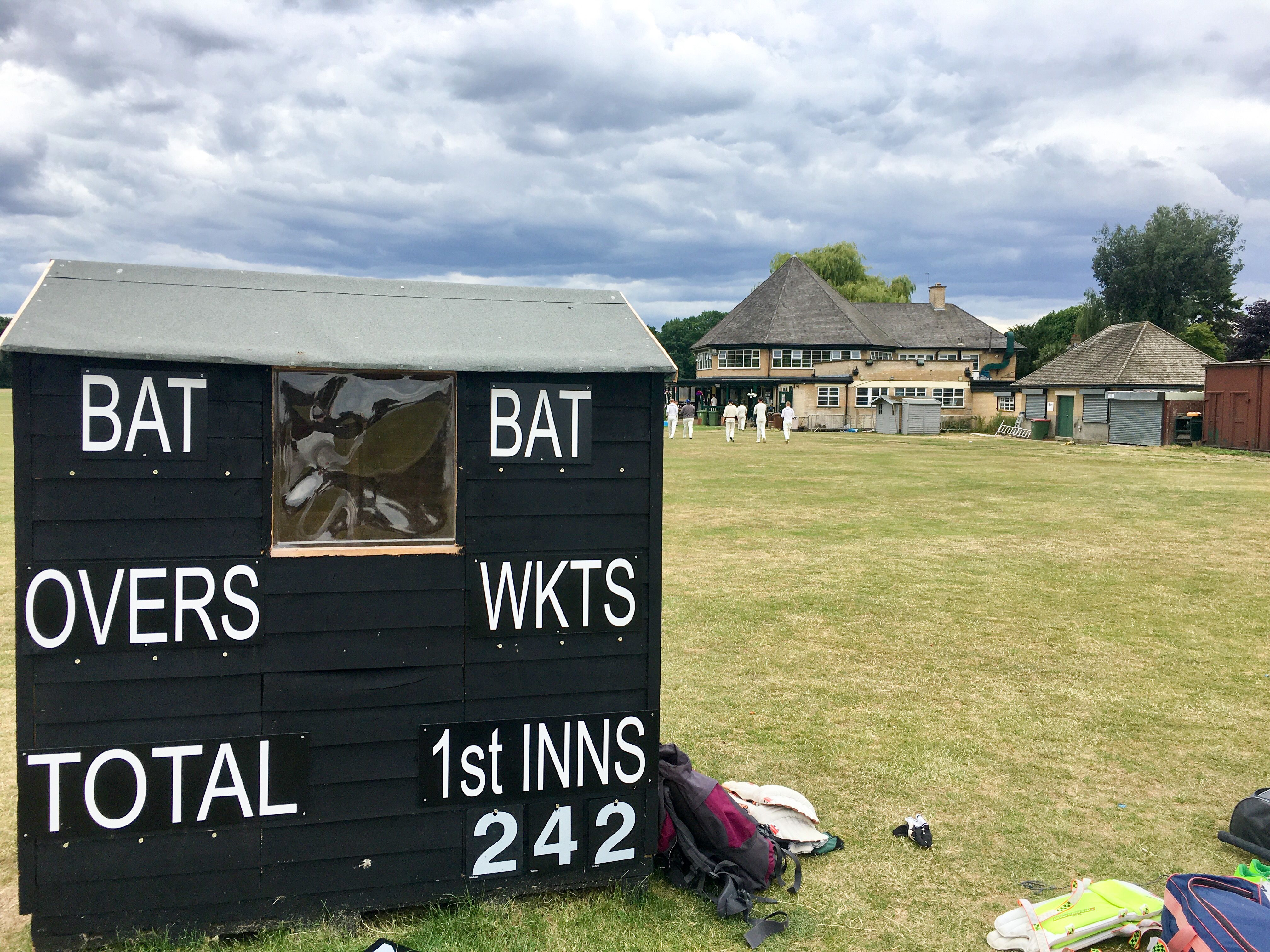
The staple for amateur cricketers
Lush village greens, players dressed in whites, a gentle round of applause from spectators, club cricket is the staple for amateur cricketers throughout the country.
For the amateur looking to enjoy the sport with an added competitive edge, club cricket is the first port of call.
According to the England and Wales Cricket Board (ECB), there are over 5,000 cricket clubs across England, catering for all ages, sexes and abilities.
As well as the opportunity to play, club cricket provides players with a chance to take part in social events and become part of a local community.
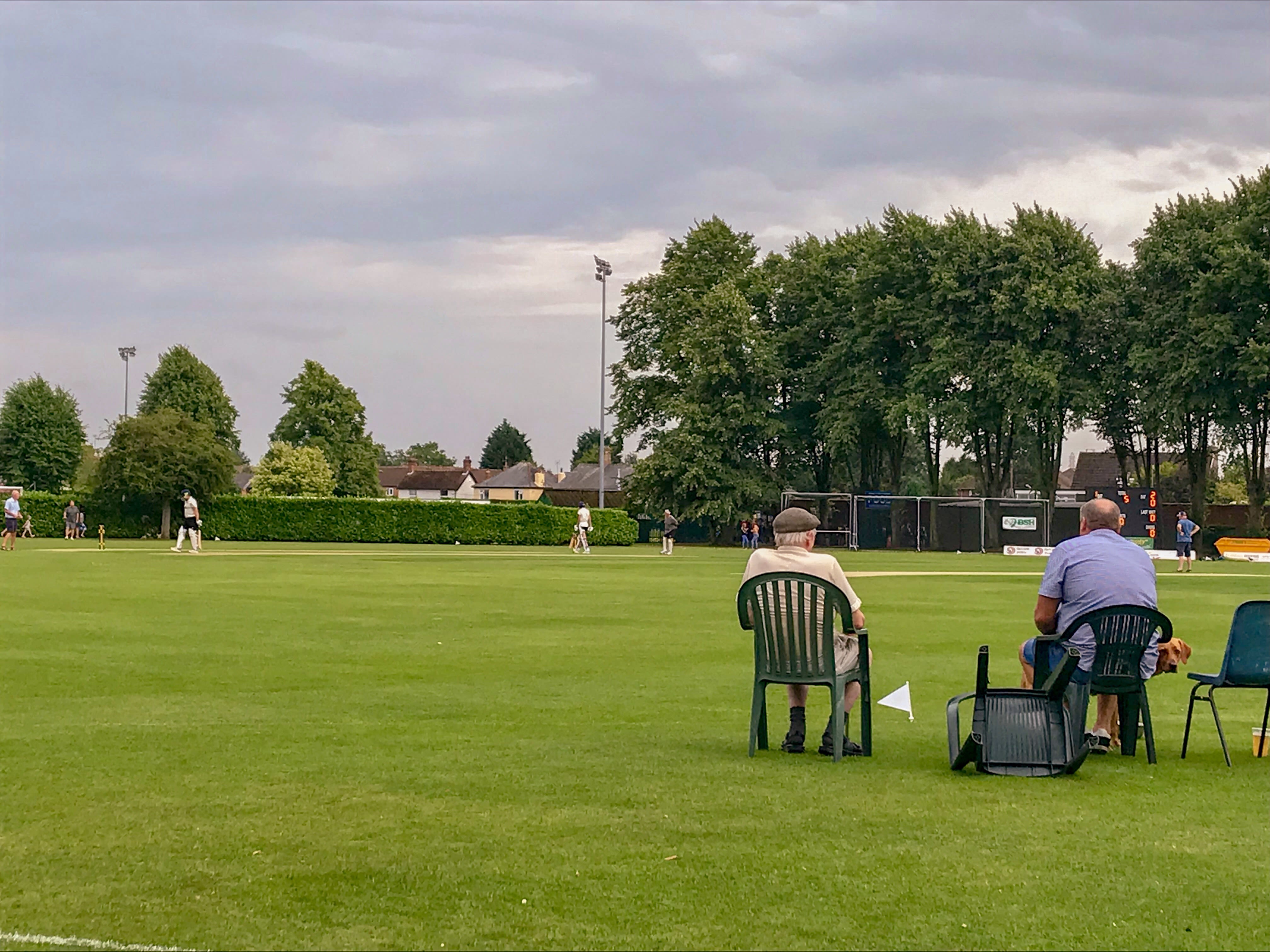
Spectators prepare for a Saturday league fixture on the Abbey Lawns, Bourne, in the Lincolnshire Premier League. Credit: Peter Gilbert
Spectators prepare for a Saturday league fixture on the Abbey Lawns, Bourne, in the Lincolnshire Premier League. Credit: Peter Gilbert
Leagues are organised by the ECB, with multiple divisions split either by region or county such as the Lincolnshire Premier League or the West of England League.
There is the chance for local rivalries to flourish, to celebrate promotion and to suffer the misery of relegation to lower tiers.
Sitting in the Surrey Leagues is Roehampton Cricket Club, one of London's oldest clubs founded in 1842.
Harry Jervis has played for Roehampton for the previous two years and has turned out for the men's second team, third team and even the first team.
Jervis decided to join the South London club after playing casual cricket with friends and feeling that he needed something else on top.
Jervis said: "It was definitely more daunting before going to the first net session but it was actually incredibly welcoming.
"There was every single level of ability and level of commitment there, and the unifying thing is everybody just wants to play cricket.
"After that first net session I wasn't in doubt that I was going to go back."
The platform of club cricket gives Jervis the chance to improve his own game, in competition with himself as he puts it, and also the chance to be a part of the club community.
Roehampton has youth teams, women's teams, Sunday and Saturday teams, meaning that it's not uncommon for whole families, from all generations, to be taking part in club cricket.
On weekends, club WhatsApp groups are updated to inform members how each side are getting on before the chance to reconvene at the clubhouse.
In addition, Roehampton offer club events such as quiz nights, raffles and inter-club matches.
"You get a lot more than just playing cricket out of (being part of the club)," said Jervis.
According to the Roehampton all-rounder, the amateur cricketer should not be put off by their level of ability when it comes to joining a club side.
Whilst the first and second sides may have a natural element of competitiveness, he stressed the desire to play cricket was the over-riding factor that kept everyone coming back.
Roehampton all-rounder Harry Jervis speaks of a disappointing first ball duck and the greatest catch he has ever taken.
Roehampton all-rounder Harry Jervis speaks of a disappointing first ball duck and the greatest catch he has ever taken.
Speaking about his plans for next season, Jervis hopes to play more for Roehampton as well as get more involved in the club's social events.
He said: "I want to get more involved in the social side of things with the club; every time I've been to the club house and socialised with the lads it's always been such a good laugh.
"I think I want to play a variety of games too, maybe some weeks playing Sunday rather than Saturday.
"I think I prefer the Saturday because it has the slight more competitive element to it but Sundays are still good fun."
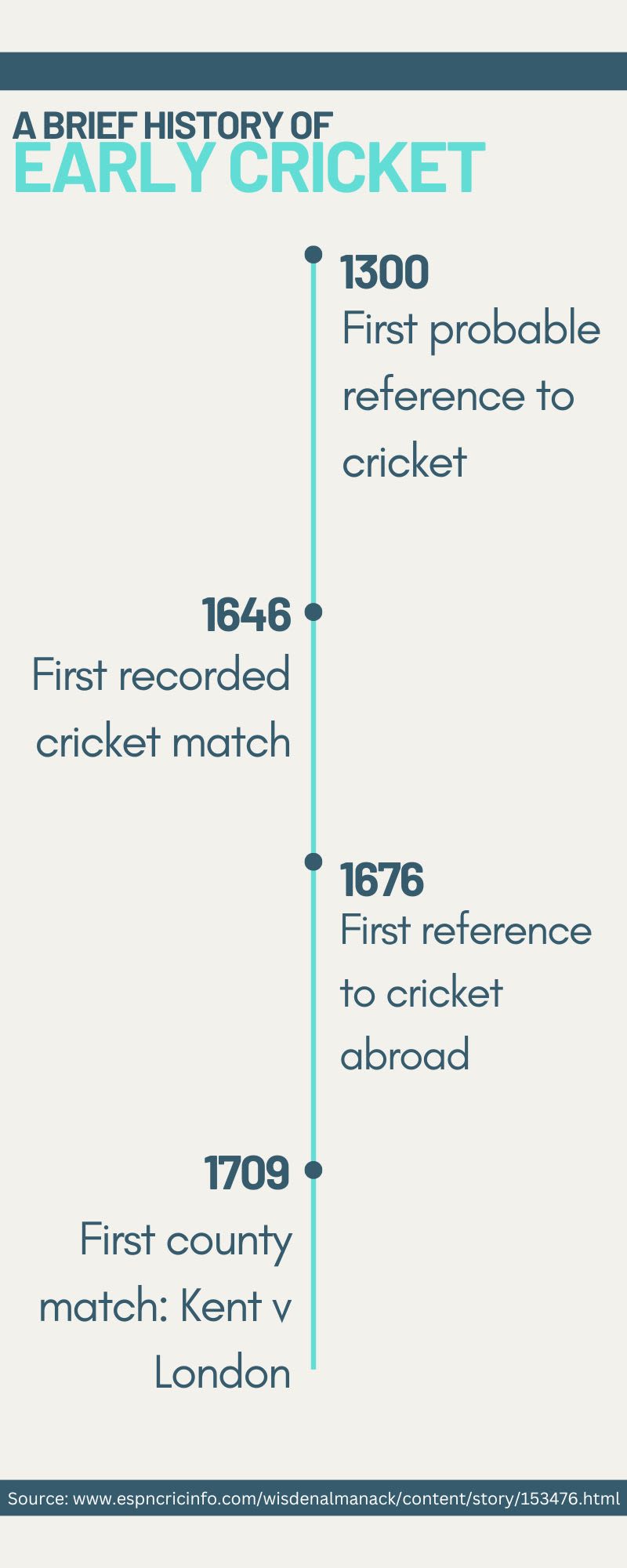
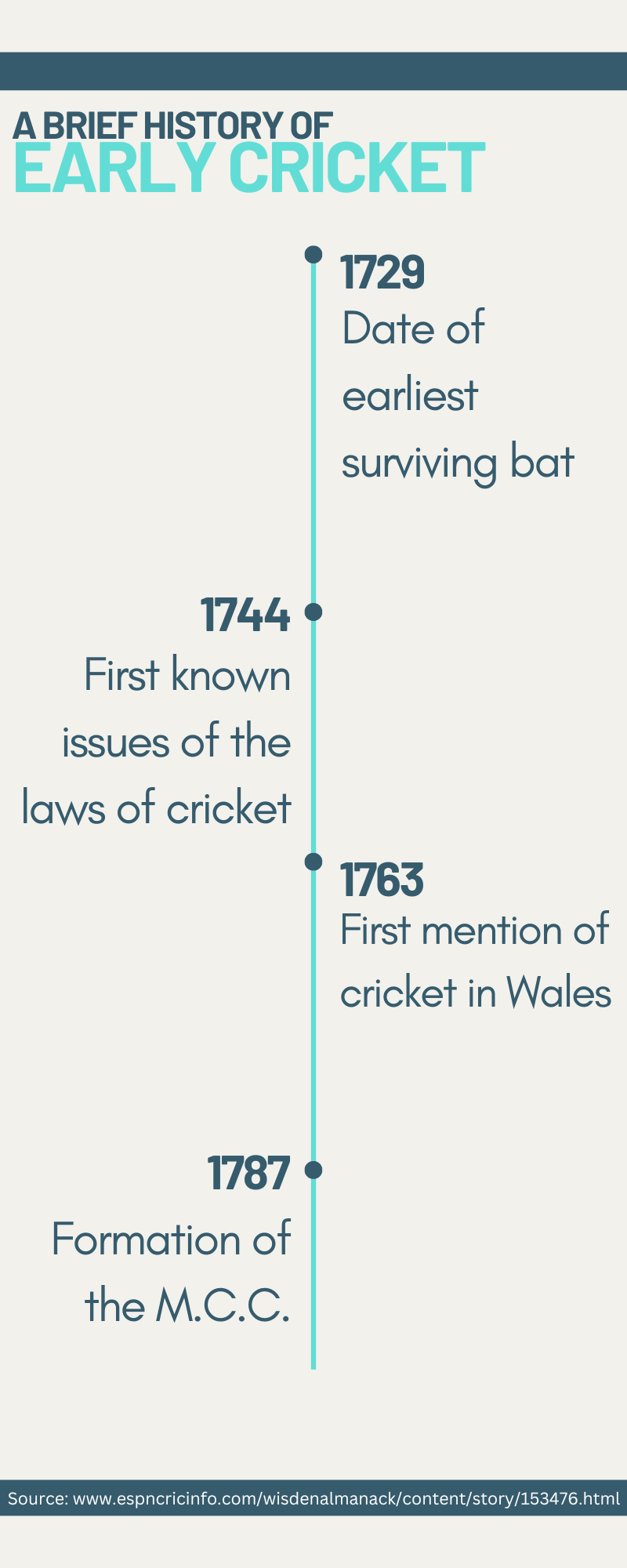
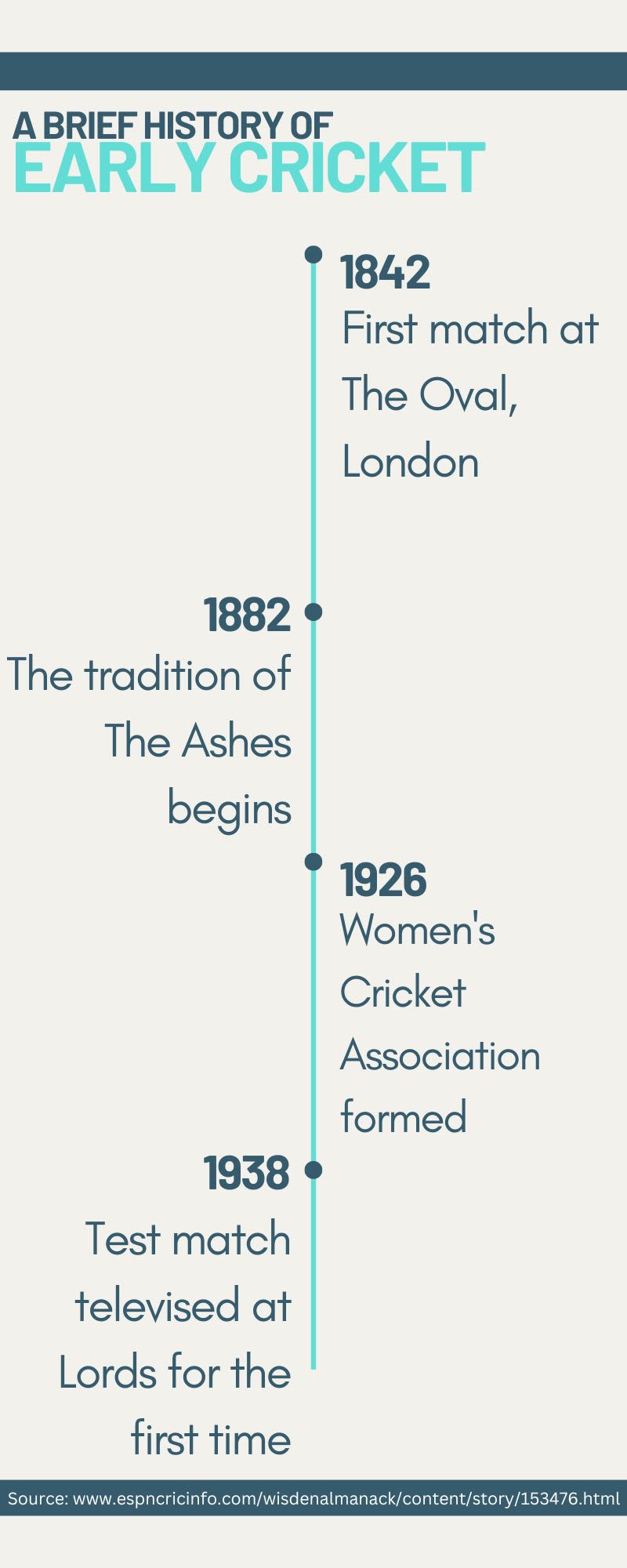
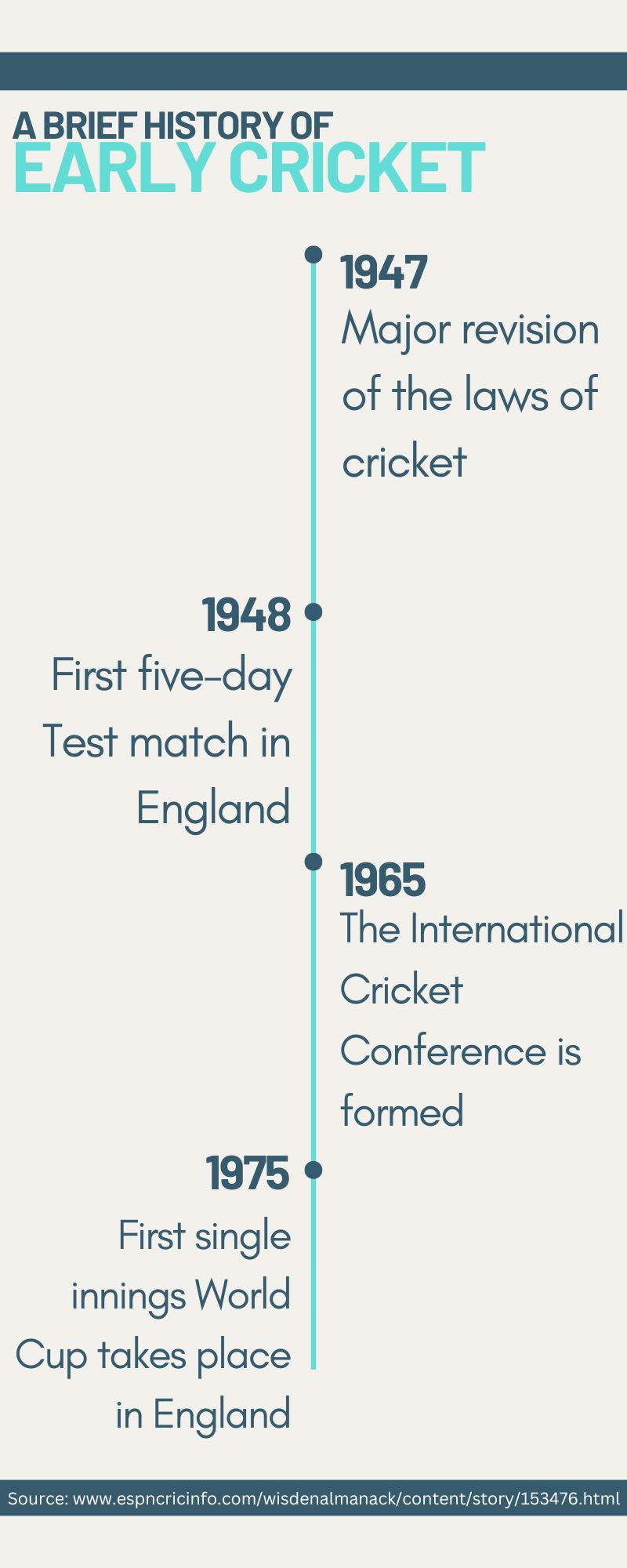
Sunday cricket
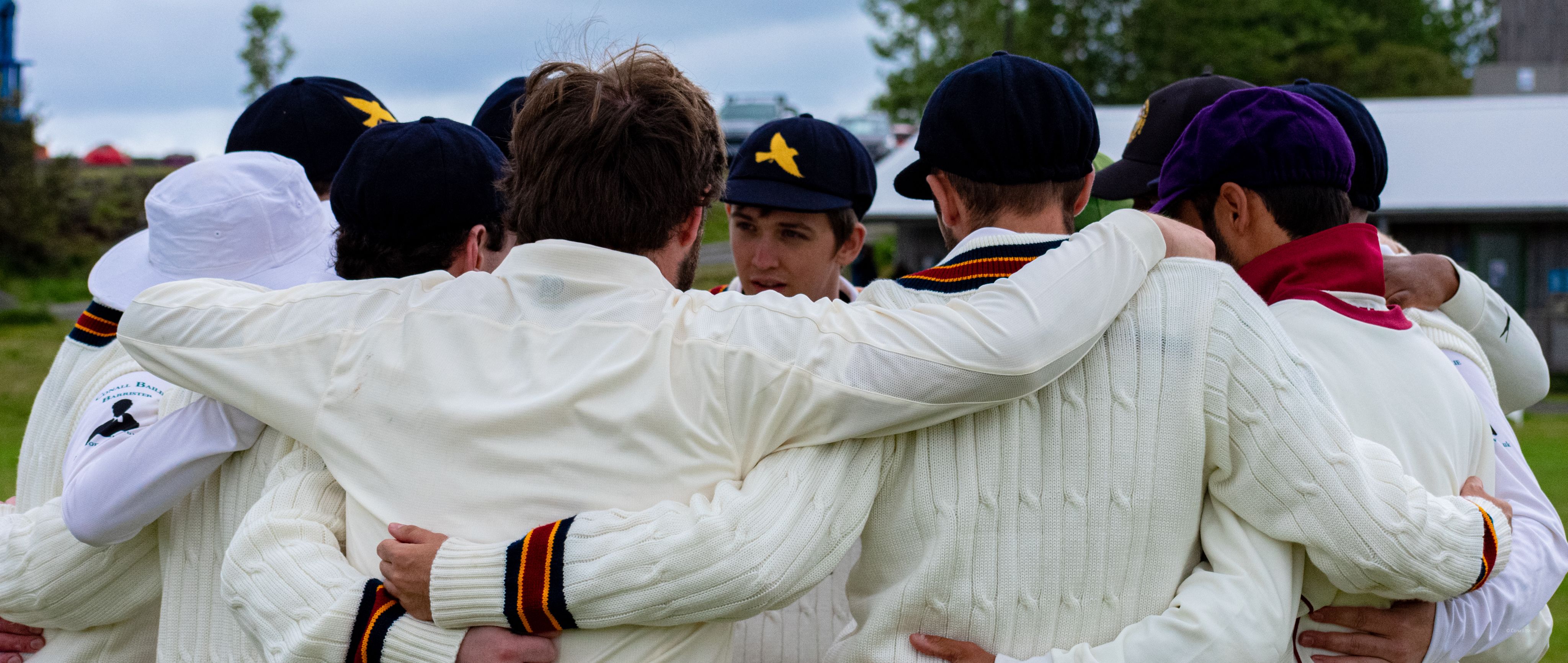
The day of the friendly
Whilst club league cricket is usually played on a Saturday, Sundays are the day of the friendly.
Points and league position are sometimes on offer, the competitive spirit of cricket is still strong, but mostly Sundays are for the amateur looking to play in a more relaxed, steadier atmosphere.
Youngsters may be blooded against adults, parents will play alongside their children and old timers will get the chance to toss up their loopy non-spinning spin.
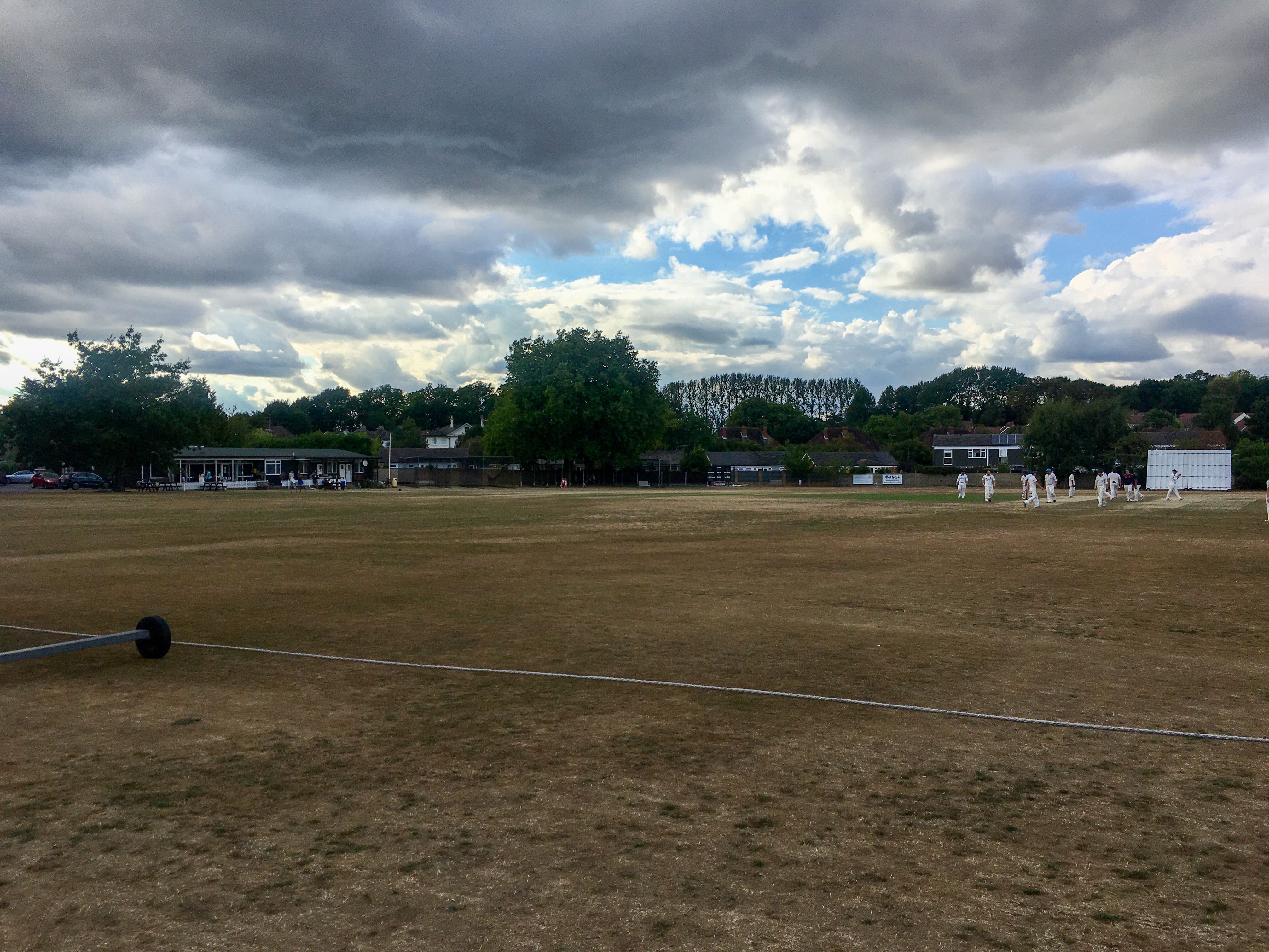
A Sunday fixture for Larkhall in South London. Credit: Peter Gilbert
A Sunday fixture for Larkhall in South London. Credit: Peter Gilbert
Established teams such as Roehampton will have their Sunday sides, but often groups of friends will join together to form their own touring, friendlies team.
One such team is London based Larkhall Wanderers Cricket Club.
Larkhall began their journey as a Last Man Stands side in 2021, before refiguring as a Sundays side this year.
The level of ability is mixed; some of the team have played grade cricket in Australia, whilst some had never picked up a bat before the season started in May.
Club Chairman Fergus Leathem began preparations for the new campaign by emailing around 50 clubs in the London area, looking for a game.
Fortunately, enough clubs responded to allow Larkhall to start their debut summer with a full fixture list for the season.
Leathem said: "I think that's one of the things that I found very reassuring, that a lot of people were willing to take a punt on this club that they've never heard of."
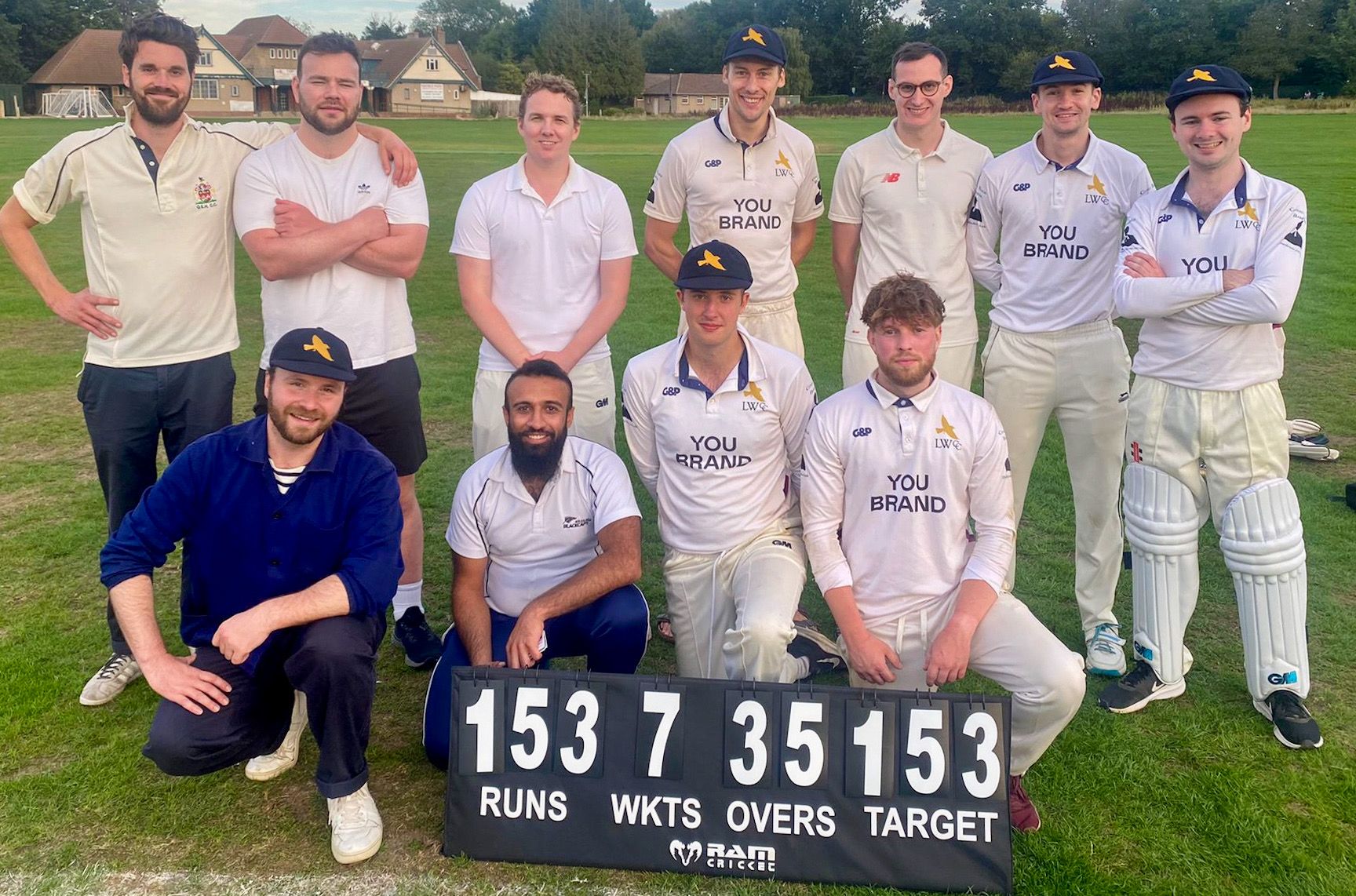
Larkhall celebrating a late season victory. Credit: Peter Gilbert
Larkhall celebrating a late season victory. Credit: Peter Gilbert
One thing that was quickly realised was the number of people needed to guarantee eleven players for a fixture, with Leathem suggesting that the team WhatsApp group would need around 50 people to help fill a starting side.
From friends of friends, to strangers simply passing by a practice net, the group gradually grew in numbers as the weeks passed.
The chairman added: "That would be a very organic process, it would be friends of friends, we know so and so, this person has played before, this person hasn't played in ten years.
"We've had a lot of people who have wanted to come back and I think that's also very heartening to see that we've created an environment which people feel comfortable in."
Considering it was the first time some of the Larkhall squad had played together, the team was happy to finish the season with five victories to their name and, despite some heavy defeats, no seriously embarrassing losses.
Just like many amateur sides, Larkhall had their fair share of highs and lows during the summer months.
One high was the team's first hat-trick, taken by 83-year-old Mr Nick, a legend within the North London friendly cricket circuit, during a tri-series tournament on Hampstead Heath.

Larkhall during the Tri-Series tournament, where Mr Nick would go on to take the club's first hat-trick. Credit: Peter Gilbert
Larkhall during the Tri-Series tournament, where Mr Nick would go on to take the club's first hat-trick. Credit: Peter Gilbert
Another high in Larkhall's season was a trip to the most northern cricket playing nation, Iceland.
After a chance tweet spotted on a visit to the pub, Leathem and the Larks were soon planning a summer trip to Reykjavik.
Not that conditions in Iceland were what you would call 'summery'.
In a howling gale, with rain coming in sideways and playing on a 'matted' pitch, Larkhall kicked off their first summer tour in five degree Celsius weather.
"You see there the real passion and energy to play a game that people love, in quite adverse circumstances in many ways, just absolutely shone through for all of them," said Leathem.
For the amateur cricketer, Leathem believes Sunday friendlies are all about the camaraderie between friends on both sides, having fun and being able to just get out on a Sunday.
Most importantly for Larkhall, it is about making sure everyone gets to bat and bowl no matter their ability.
"There's a real imperative for everybody to be given a go, because it's no fun if you turn up and you're just filler," said Leathem.
Larkhall hope to build on this year's success by expanding the fixture list, widening the player pool and ensuring 'second season syndrome' doesn't affect the enthusiasm built so far.
The chairman said: "It's been a great pleasure to be able to play as a team with a group of people, some of whom were mates before, some are new mates, that's so exciting.
"I want to do more of it; spend my Sundays chasing leather around a park somewhere.
"I can't think of anything better."
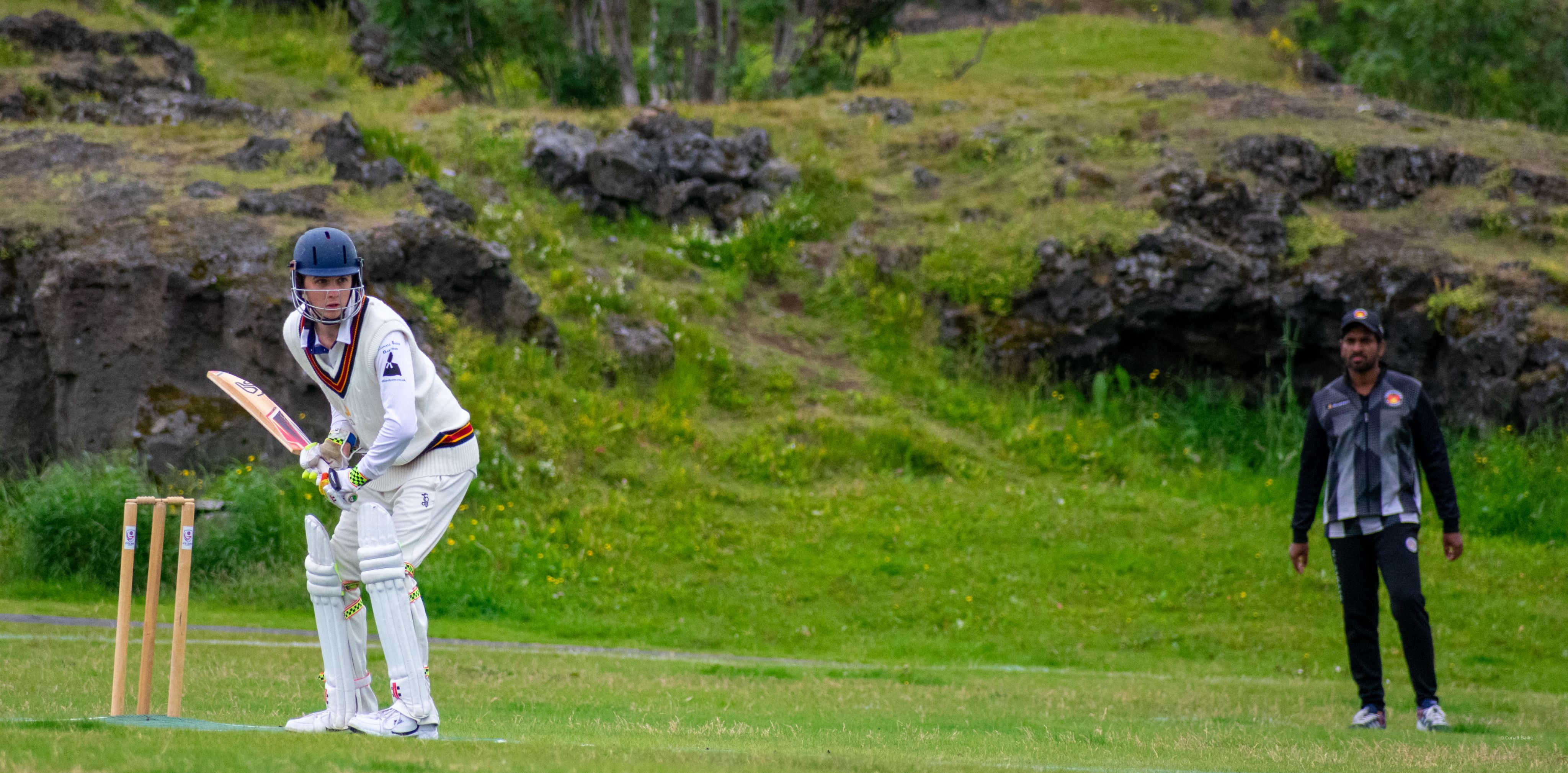
Club captain Jamie Horton on strike during the tour of Iceland. Credit: Conall Bailie
Club captain Jamie Horton on strike during the tour of Iceland. Credit: Conall Bailie
Leathem explains how the incredible opportunity to tour Iceland came about, and how conditions were far from the 'traditional' conditions faced in England.
Leathem explains how the incredible opportunity to tour Iceland came about, and how conditions were far from the 'traditional' conditions faced in England.
a
a
aa
a
a
a
a
a
a
a
a
a
Batter Anthony Kane dismissing the ball to the boundary. Credit: Anthony Kane
Batter Anthony Kane dismissing the ball to the boundary. Credit: Anthony Kane
a
a
a
a
a
a
a
a
a
a
a
a
a
a
a
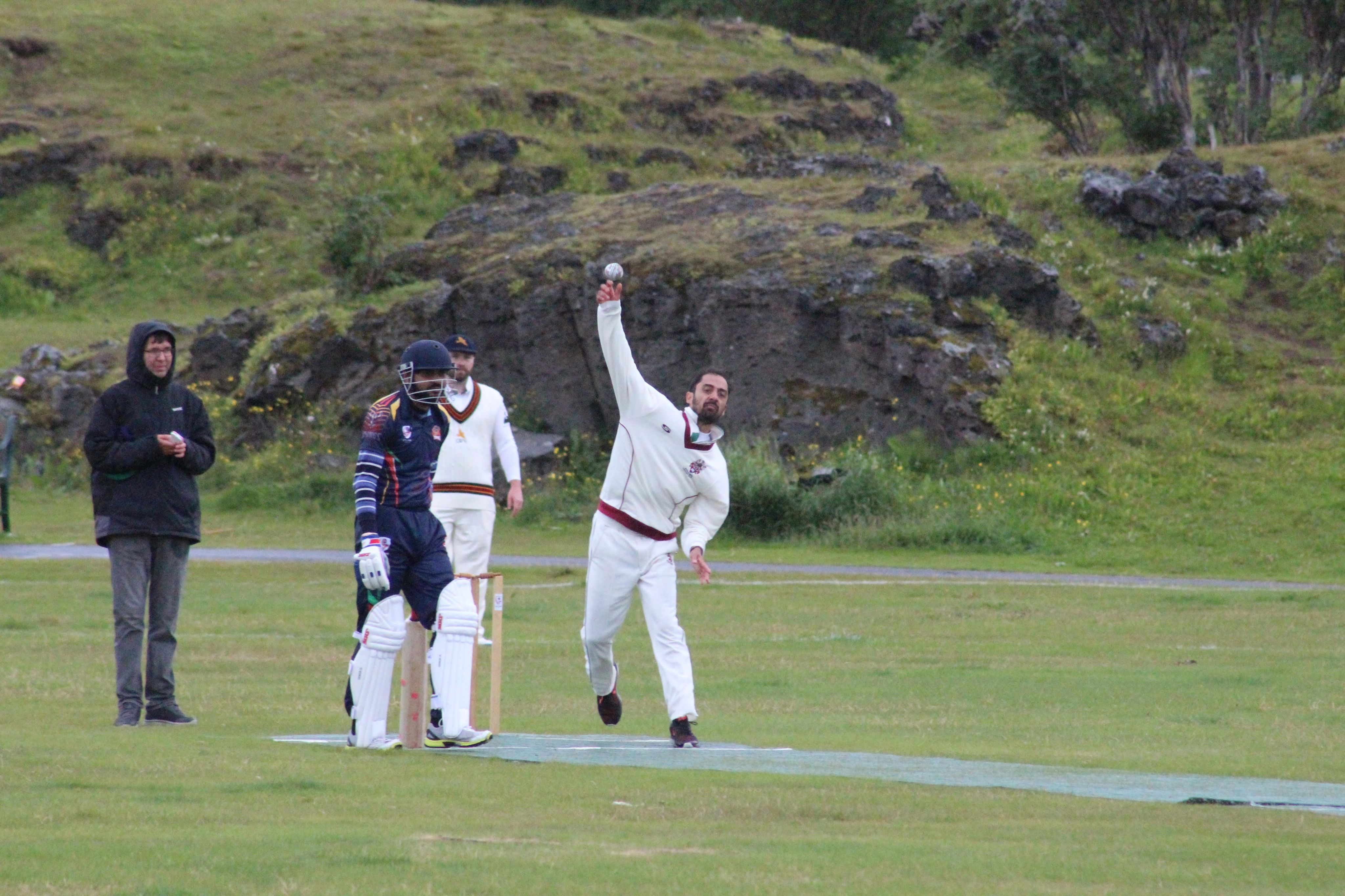
Bowling action from the tour of Iceland. Credit: Anthony Kane
Bowling action from the tour of Iceland. Credit: Anthony Kane
a
a
a
a
a
a
a
a
a
a
a
The hat-trick ball from Mr Nick during the Tri-Series tournament. Credit: Fergus Leathem
The hat-trick ball from Mr Nick during the Tri-Series tournament. Credit: Fergus Leathem
Last Man Stands
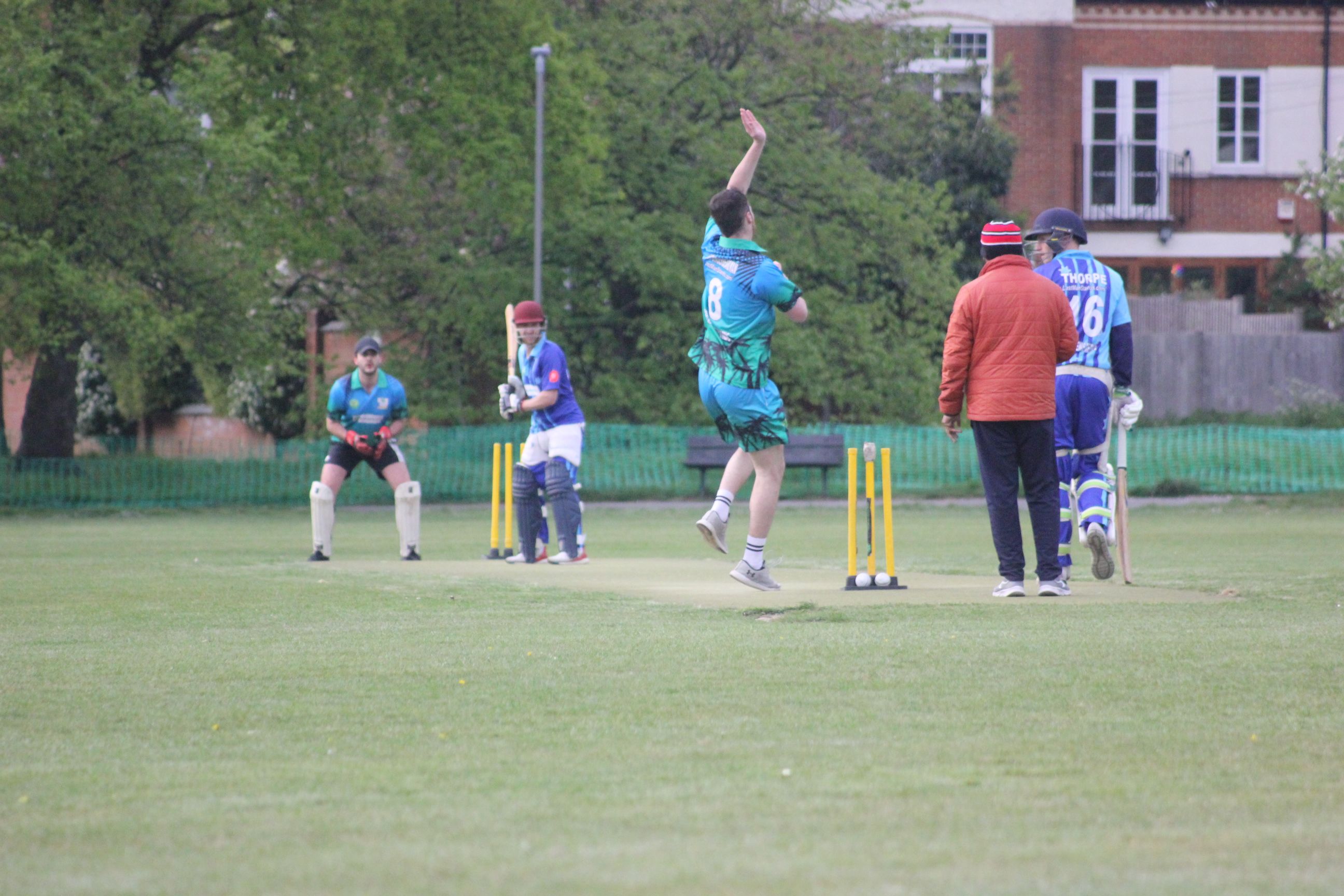
It's anybody's game
Committing to a cricket team, over the entire summer season, can be difficult for those juggling family lives, work calendars and social events.
Midweek training, travelling to fixtures and playing a full fifty-over game can take up not just hours but days of the already time pressured week.
For those amateurs still seeking the thrill of the game but struggling for time, Last Man Stands (LMS) has come to the rescue.
With the game set to last only two hours, LMS allows players the chance to play competitive cricket, within a regional league, and still be home with time to spare.
Founded in London in 2005, LMS has over 180,000 players worldwide, with leagues set up in cities such as Sydney, Johannesburg and Chennai.
As a result of an unique app that tracks the runs scored, wickets fallen and catches taken (or in most cases, dropped), amateurs and sides they play for are connected across the world by a ranking system.
With the introduction of a livestreaming YouTube channel and the classic, colourful team kits, Last Man Stands gives amateur cricketers a taste of the professional whilst still remaining anybody's game.
LMS still gives the chance for amateurs to feel the highs of the game...and the inevitable lows. Credit: Peter Gilbert
LMS still gives the chance for amateurs to feel the highs of the game...and the inevitable lows. Credit: Peter Gilbert
One well known face in the LMS circuit, making regular appearances in the London leagues, is Manoj Oswal.
Oswal, 48, has played nearly 600 games, is ranked 929th in the world for batting and has a high score of 134*.
His bowling isn't bad either, taking 482 wickets with best figures of 5/45 and an economy of 7.09.
Oswal started playing cricket in the Surrey and Middlesex Leagues, before committing more to Last Man Stands.
His love for the game has seen him return to playing all forms of amateur cricket, playing around 120 games this year and for over 70 LMS sides in his career.
Now, he is an official ambassador for the Lashings World XI, a team of former test players travelling the world as a fundraising cricket team.
Manoj Oswal discusses the highs and lows of his LMS playing career.
Manoj Oswal discusses the highs and lows of his LMS playing career.
Oswal started playing LMS in 2008, as part of a work side, back when the game statistics were still written on paper rather than the app.
He said: "It was quite an amazing experience because everything was taken care of.
"All you had to do was show up with your kit; the umpire was there, the stumps were there, the scoring was done by the umpire too."
Over a year, Oswal suggests he may play for up to 30 teams.
This started from hanging around to cheer on friends taking part in games scheduled after his own.
It then snowballed into playing for more than one team, to two teams and eventually up to roughly 70 teams he has played for in his LMS career.
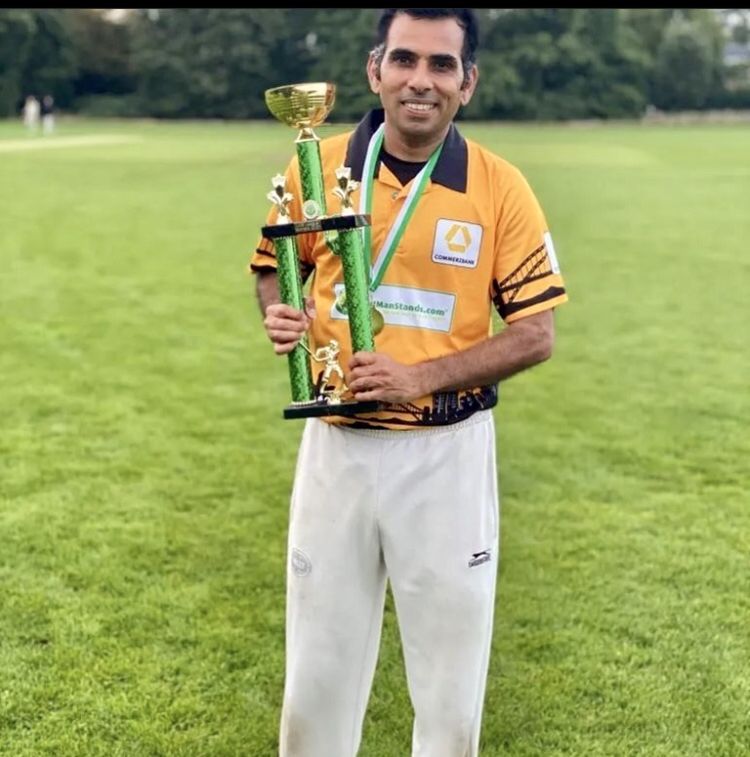
Manoj Oswal has tasted success in many outings for the Commerzbank LMS side. Credit: Manoj Oswal via Instagram
Manoj Oswal has tasted success in many outings for the Commerzbank LMS side. Credit: Manoj Oswal via Instagram
These teams are not limited to being London based, or even based in the UK.
Playing with LMS has allowed Oswal to take part in world tours playing cricket (open to any LMS side, incidentally), in countries such as Spain, the Netherlands and South Africa.
As a result, he has built strong bonds with LMS players across continents.
When he was short of a world record number of 50s in a year, Oswal was humbled when his friends in a South African LMS side offered him the chance to beat the record in their team.
(He beat the record)
These bonds with fellow amateur players are felt at home, as well as across the globe.
Oswal said: "I've been playing for 14 years and new people have come in, but most of the guys are still around, very few have retired.
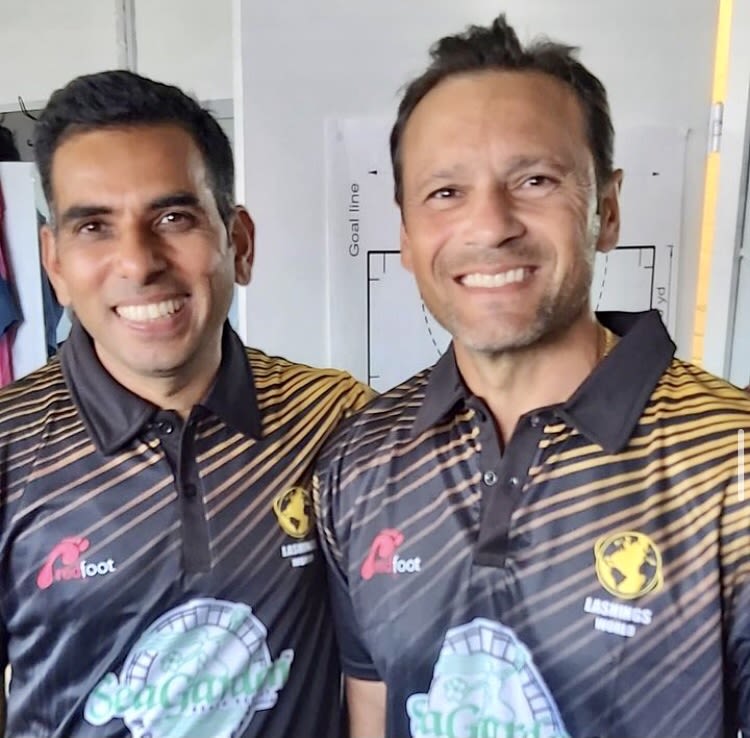
Playing for LMS and representing Lashings XI has allowed Oswal to play alongside many of the world's cricketing greats, including Herschelle Gibbs, Yasir Arafat and Mark Ramprakash (above). Credit: Manoj Oswal via Instagram
Playing for LMS and representing Lashings XI has allowed Oswal to play alongside many of the world's cricketing greats, including Herschelle Gibbs, Yasir Arafat and Mark Ramprakash (above). Credit: Manoj Oswal via Instagram
"It becomes a very long standing partnership, you never feel like there is an opposition team.
"Everyone you play against is your mate and that is a lot more fun, there's no pain in losing."
Oswal encourages any amateur to get involved in LMS, no matter the ability level.
He stresses if your team is good, you'll reach higher leagues and if it's not, then it doesn't matter because you'll still have fun.
"Come celebrate the fun of playing cricket," he said.
Three Key Points
Three key points can be seen as shared experiences for cricketers across the amateur platforms.
First is that amateur cricket is open to all abilities and backgrounds, being good at the game is a bonus but not essential.
Next, amateur cricket is an opportunity for camaraderie and friendship to blossom, between historic friends and newcomers to the group.
Lastly, and most importantly, amateur cricket is meant to be fun for the people playing.
With these three key points, it can be hoped all three amateur options - league cricket, Sunday friendlies and Last Man Stands - will continue to provide access for all to one of the country's most cherished and long standing sports.



Photo credits: Conall Bailie, Anthony Kane, Manoj Oswal, Peter Gilbert
A game for all abilities image: Peter Gilbert
League Cricket image: Peter Gilbert
Sunday Cricket image: Conall Bailie
Last Man Stands image: Peter Gilbert
Video credits: Fergus Leathem, Peter Gilbert

